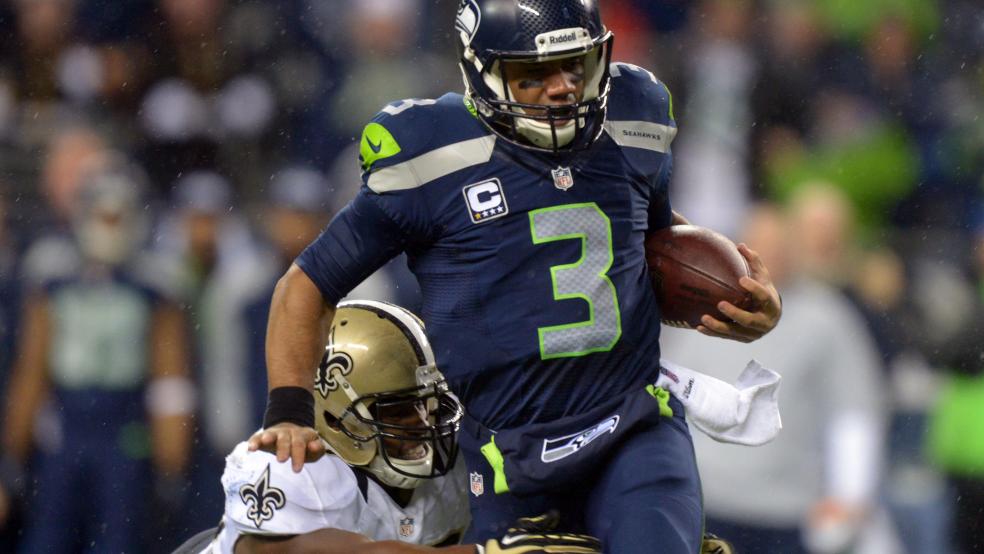If you're into fantasy sports, you already know fantasy sports are huge. According to the industry's trade association (who knew fantasy sports needed a trade association?), each of 41 million people in the U.S. and Canada spends an average of over $100 per year and 8 hours a week playing fantasy sports. (Most popular: football.)
And also know that Matthew Berry is ESPN's Senior Fantasy Analyst, author of the New York Times bestseller Fantasy Life (a fun read on how he built a brand from scratch), and the founder of RotoPass.
Related: 10 Big Money NFL Draft Busts
But what you may not know is that some of the principles for winning in fantasy sports also apply to winning at business--and even at life.Matthew describes those principles as "Lesterisms" after his great-uncle, Lester Gold. Here are some Lesterisms to take from fantasy sports and apply to your professional life:
"Don't make a decision until you have to."
In fantasy sports it's easy to panic and get ahead of yourself. Say you're worried about what you'll do when your quarterback has a bye week. Or maybe you're worried about how long an injury will keep a key player off the field. What happens? You often act before you need to, which by definition means you act on incomplete information--which is never a recipe for success.
The same is true in business. You just heard a competitor is considering entering your market? Fine--think about it, plan for the possibility … but situations can and will change. Wait until you have to act to actually act. Create as many contingency plans as you want, but wait to be sure the "if" in your if-then statement moves from if to fact.
"Don't risk what you can't afford to lose."
Most entrepreneurs are optimists - otherwise they wouldn't be entrepreneurs. By nature small business owners are dreamers. They see positives where few others can.
Related: Sam Bradford Is Exactly Why the NFL Changed Its Rookie Contracts
Still, every step, every decision, and every deal has an upside and a downside. Putting all your eggs in the Michael Vick basket this year? The upside might be huge … but what if Geno Smith has a huge year and Vick rarely plays? Then what?
Take risks, but always be sure you can recover from the worst that can happen. And if you decide you won't be able to recover, that's okay--there are always other deals.
"If a guy is trying to trade in one car for another and asks if the car leaks oil, that means his car leaks oil."
In a negotiation what you say is important--but what the other person says is a lot more important. The best deals result from listening, not talking. Say what you need to say and then listen. You'll never realize all you need to do is throw in your backup tight-end to pull off an awesome trade until you spend less time trying to convince and more time just listening. The only way to make a deal the other person will accept is to actually know what the other person wants … and needs.
"Don't trade something you need for something you don't."
It's tempting to want the best - of everything. But almost always what you really need to do is improve your "worst."
Say you have a great warehouse facility … and another one that is slightly better is on the market. That's like trading Aaron Rodgers for Peyton Manning. Sure, Manning may be slightly better, but who cares when your running back is Ronnie Hillman? (No offense, Ronnie.) You don't need Peyton - you need Adrian Peterson. Your goal is to constantly improve your entire operation, not just one part of it. Always add and subtract parts that will make the biggest impact.
"When a mouse is caught in a trap, he's not thinking about the cheese, he's thinking of how to get out. But once he's out he's thinking about the cheese again."
Every deal, every transaction, and every relationship has two sides. Your point of view is important, but so is the other person's. Take advantage when people are in need and while you may help them in the short term you'll cause lasting damage to those relationships. Take too much off the table in a negotiation and while you may "win" in the short-term, you forfeit any chance of a long-term customer relationship. Offer a below-market salary to a person desperate for a job and that employee will never develop a sense of loyalty and trust for you or your company.
"Anyone can get along with easy people. A great leader can get along with difficult people."
Because at some point all of us, however fleetingly, can be difficult … and how you act in those moments is the true test of your leadership skills--and, sometimes, your value as a friend.
This article originally appeared at Inc.com.
Read more at Inc.com:
The Coolest Products of the Inc. 5000
Inversions: Why This Newish Tax Loophole May Be a Goner
10 Things Managers Intentionally Do to Avoid Hiring Great People




